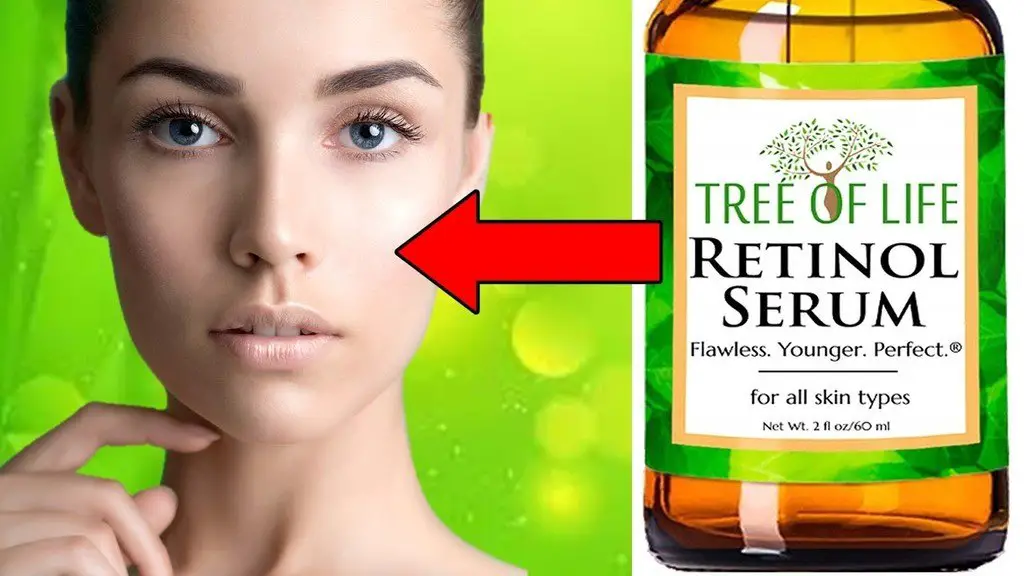What is retinol?
Retinol is a form of vitamin A, which is found in foods like carrots, eggs, spinach, and sweet potatoes. As a dietary supplement, retinol is used to treat vitamin A deficiency.
It’s also prescribed to treat a number of skin conditions or applied topically to the skin, where it converts to retinoic acid. This acid communicates with your skin cells, and retinoid receptors found naturally in your skin join in with this communication. Through the receptors, Vitamin A is released to your cells.
When used in skincare, retinol is effective in improving skin texture, pigmentation, and tone. it alters the behaviour of aged cells so they act in a more youthful manner. Using retinol in your daily skincare routine can speed up skin renewal, enhance collagen production, and reduce the appearance of ageing.
Benefits of retinol
1. Prevents skin ageing


Although it wasn’t its original purpose, retinol is now highly recommended by dermatologists for its anti-ageing properties. This is because retinol helps the skin cells to produce and maintain collagen, which improves the strength and elasticity of the skin. Retinol slows the breakdown of collagen and helps you to stabilize your cells, resulting in healthier collagen production.
Having a balanced amount of collagen in your face prevents the appearance of fine lines and other signs of ageing. It’s even thought that retinol can undo previous signs of ageing in the skin too.
2. Treats psoriasis
Retinol works to normalize cells, which in turn prevents unhealthy cell growth. This is particularly useful for people dealing with a skin condition called psoriasis.
Retinoids – the term used for retinol-based products and medications – can penetrate skin cells and bind to the DNA receptors that regulate cell division. By doing this, they can slow down hyperproduction of skin cells, promote the shedding of dead skin cells, reduce dryness and flaking, and improve overall skin appearance.
Retinol is effective at treating other skin conditions aside from psoriasis. Experts say that retinol can slow down or even entirely put a stop to the build-up of skin patches and the development of warts. Retinol can also reduce inflammation, which is especially important for people with painful skin conditions.
3. Improves complexion
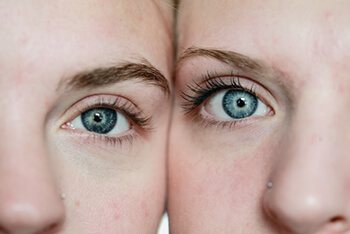

One common side effect of getting older is that our skin cells don’t renew as quickly. Dead skin cells tend to accumulate in one location, which presents as duller skin, especially on the face, hands, and ankles.
Retinol helps skin cells break down more rapidly, which leads to a faster production of new skin cells, thus accelerating skin renewal. New skin cells make for brighter, fresher-looking skin.
A combination of age and sun damage can also cause hyperpigmentation, which is a harmless skin disorder that causes patches of skin to become darker in colour than the normal surrounding skin.
This darkening occurs as a result of an excess of melanin, the brown pigment that produces normal skin colour, in the skin. When you use retinol to normalize and renew the cells, it will likely diminish hyperpigmentation too, as your skin defends itself against age and sun exposure. Retinol also stimulates blood vessels giving you a rosier complexion.
4. Fights acne
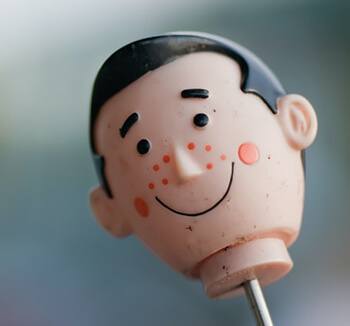

While it not exactly an exfoliant, retinol acts similarly to one. You might only apply retinol topically, but it works deep within your skin, at the cellular level. It also does a great job of breaking down dirt and old skin cells, which can commonly cause skin conditions like acne.
Retinol unclogs your pores, giving skin a cleaner appearance and creating space for other beneficial skincare products to come in contact with your skin. If you deal with particularly bad acne, you may be prescribed retinoid pills by your doctor, which are commonly used to treat oil production, bacteria that cause acne, and inflammation.
These have been proven to work – clinical studies have shown an impressive 87% decrease in acne lesions after just three months of using a prescribed retinoid.
5. Improves skin health
Using retinol on the skin improves skin health, which, in turn, improves our overall health. Our skin, being the biggest organ in the body, most definitely impacts us holistically.
The skin helps our bodies to perform a number of important processes needed for survival, like heat regulation, protection from microbes and the elements, improved immune responses, and regulation of water and electrolytes.
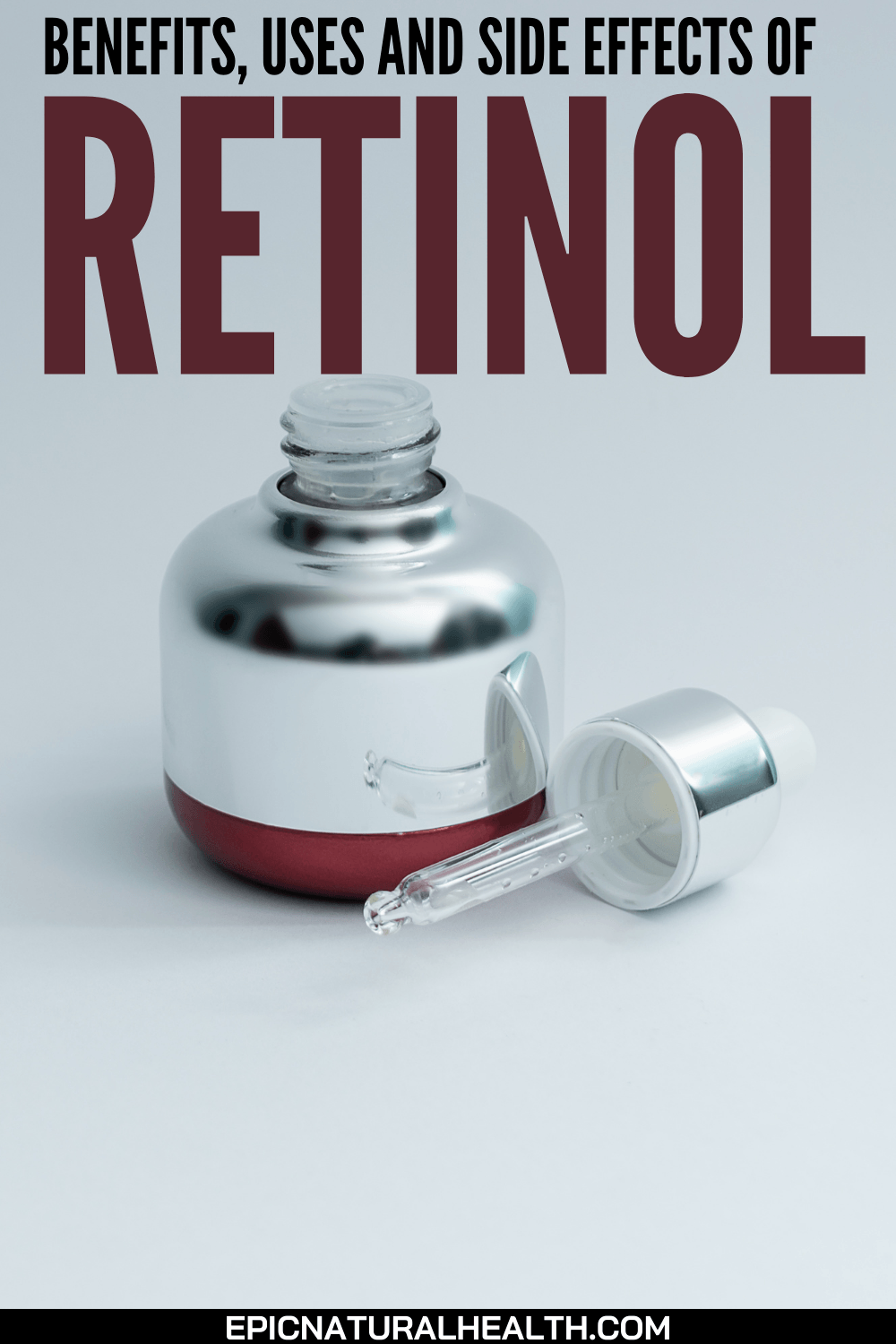

Uses of retinol
1. For treating acne, psoriasis, and other skin conditions
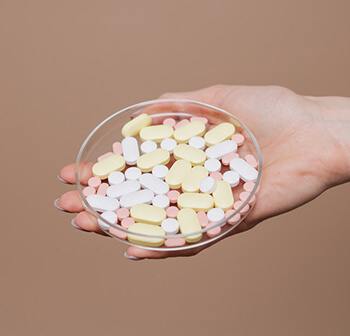

As we mentioned earlier in this video, retinoids are often prescribed by dermatologists to patients who are dealing with acne, psoriasis, and other skin conditions. These usually come in tablet form, and are taken daily to a set dosage. These retinoids help control the multiplication of cells, including the speed at which skin cells grow and shed.
Prescription retinoids tend to contain a much higher quantity of retinol than retinol-based skincare products. This makes them more effective at treating a specific problem, but it’s especially important to follow dosage recommendations and talk to your doctor if you experience any side effects.
2. In anti-ageing formulas
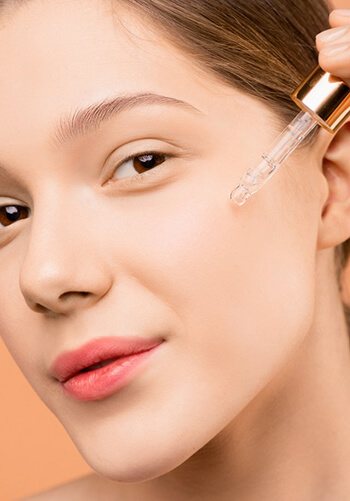

Another common use of retinol is a topical application for your skin, usually your face. Retinol is included in many skin care products that treat common signs of ageing, like dark spots, wrinkles, sagging, and dull skin.
Different skin care products may work differently for you depending on your skin type. Look for products that contain the most natural ingredients, without the addition of harsh chemicals that might counteract the positive effects of retinol. If you’re new to retinol-based skincare, start off with a low dose of around 0.025%. If your skin has no adverse reactions, you can slowly move up to a higher percentage.
3. To treat vitamin A deficiency
Finally, retinol can be taken in supplement form to treat vitamin A deficiency. You might not get enough vitamin A if you’re dealing with fat malabsorption or a liver disorder. Equally, you can become deficient in vitamin A simply by not including enough of it in your diet. Without vitamin A, you may show symptoms like impaired vision, scaly skin, and weakened immunity.
If your doctor finds you’re deficient in vitamin A, they’ll usually suggest retinol supplements to treat the issue. You should take these supplements once a day, in the same way, that you’d take any dietary supplement. If you’re prescribed specific retinol supplements, note that they might contain a higher concentration of retinol than standard supplements found in health stores.
- [ ACNE RETINOL SERUM FOR FACE ] With encapsulated retinol, this serum helps skin look smoother and more even-toned. Pore-minimizing serum for face helps refine skin’s texture over time and helps visibly reduce the appearance of post-acne marks.
- [ LIGHTWEIGHT SERUM ] Gel texture & a non-greasy feel. Apply Resurfacing Retinol Serum at night & apply sunscreen. Apply a pea-sized amount of CeraVe retinol serum in a thin layer and allow to fully absorb into skin before applying additional products.
- [ BRIGHTENING SERUM ] Formulated with licorice root extract helps to brighten the appearance of skin and niacinamide helps to calm skin. Fragrance free, paraben-free, and non-comedogenic.
- [ 3 ESSENTIAL CERAMIDES ] Ceramides are found naturally in the skin and make up 50% of the lipids in the skin barrier. All CeraVe products, formulated with three essential ceramides (1, 3, 6-II)to help maintain the skin’s natural barrier.
- Retinol: Promotes Fine Line Treatment
- Squalane: Hydrates Skin
- Rosemary: Soothing Ingredient
- Lightweight Serum Formula: Absorbs Quickly
- [ RETINOL SERUM FOR FACE ] Anti-aging facial serum with Retinol to help improve skin’s texture including visible signs of aging for more radiant skin and Hyaluronic Acid to help retain skin’s natural moisture, and Niacinamide to help calm skin.
- [ SMOOTH TEXTURE ] Lightweight serum with a gel texture and a non-greasy feel. If layering with an eye cream or facial moisturizer, apply Skin Renew Retinol Serum in a thin layer and allow to fully absorb into skin before applying additional products.
- [ GENTLE ON SKIN ] Fragrance free, non-comedogenic, and non-irritating formula. As retinol can cause sun sensitivity, please apply Skin Renewing Retinol Serum at night or wear a facial moisturizer with at least SPF 30 sunscreen if wearing during the day.
- [ 3 ESSENTIAL CERAMIDES ] Ceramides are found naturally in the skin and make up 50% of the lipids in the skin barrier. All CeraVe products are formulated with three essential ceramides (1, 3, 6-II) to help restore and maintain the skin’s natural barrier
- This anti-aging pure retinol face and neck serum leaves skin feeling smoother, hydrated, and renewed
- As a result, the look of lines, wrinkles and premature sun damage is reduced. This retinol serum combines concentrated pure retinol and vitamin B3 for optimal effectiveness while also being suitable for sensitive skin
- Lightweight, hydrating texture visibly renews skin, reducing lines and wrinkles and creating a more luminous look
- Pure Retinol: A derivative of vitamin A (retinoic acid) helps promote surface cell turnover and improves fine lines and wrinkles. Pure and gradual release retinol acts gradually on skin for efficacy and tolerance
Side effects of retinol as a supplement
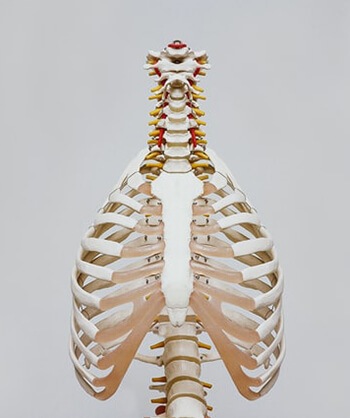

As with all dietary supplements, there is such a thing as taking too much retinol. Consuming large amounts of retinol can lead to a number of health issues. Studies show that abnormally high levels of vitamin A in the blood can prevent bones from properly building and increase bone loss, putting you at a higher risk of degenerative bone diseases like osteoporosis.
If you overdose in retinol, you might experience symptoms such as increased pressure in the space between your skull and your brain, nausea, stomach pain, sickness, and skin peeling. Another sign of vitamin A toxicity is a condition called carotenosis, which causes the palms of your hands and the soles of your feet to turn a deep yellow or orange colour.
If you’re deficient in retinol, on the other hand, you might show symptoms like coarse hair, thinning eyebrows, dry skin, cracked lips, muscle weakness, and severe headaches. You should visit your doctor as soon as possible if you think you’re showing signs of either retinol toxicity or retinol deficiency.
When should you take retinol supplements?
You shouldn't take a retinol or vitamin A supplement if you're allergic to it or any other ingredient found in the supplement you're taking. If you already have symptoms of vitamin A toxicity, you should also avoid the supplement.
Ask your doctor before taking retinol or any vitamin A if you have:
- Liver or kidney disease
- Problems with alcohol abuse
- A skin condition called acne vulgaris
- Health conditions that affect your ability to absorb nutrients from food
Vitamin A is safe to take during pregnancy and breastfeeding as long as you don't take more than the recommended amount for your age and condition. Keep in mind that abnormally high doses of vitamin A can cause birth defects, miscarriages, and harm to your baby.
Side effects of retinol as prescribed medications
If you’ve been prescribed retinol by your doctor for treating a skin condition, you might experience a number of mild side effects, including a brief sensation of warmth or stinging immediately after administering, peeling, dry skin, burning, warmth, stinging, redness, tingling, swelling, irritation, discoloured skin, itching, scaling, or worsening of acne. These side effects are fairly common and aren’t normally a cause for concern.
Always tell your doctor which other supplements and medications you’re taking if they’re planning to prescribe a retinol medication. Stop taking your medication and get in touch with your doctor if you experience more serious side effects like severe burning, stinging, or irritation of treated skin, severe skin dryness, or severe redness, swelling, blistering, peeling or crusting.
Side effects of retinol in skincare treatments
Even though retinol-based skincare products contain much lower levels of retinol than some supplements and prescribed medications, you may still experience some mild side effects after topical application to your skin. With retinol, it’s common for skin to get worse before it gets better, and common side effects include dryness, tightness, peeling, and redness, especially when you’re first starting out.
These side effects should completely vanish after a few weeks to a few months of use. As soon as your skin gets used to the ingredient, you should feel fine, but until then, you can temper the harshness by applying moisturiser before you use retinol every night. You can also use retinol on a less frequent basis until your skin adjusts to it.
Conclusion
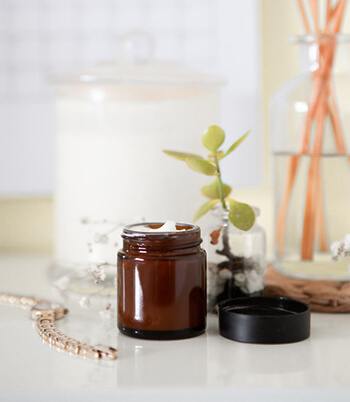

There are so many reasons to enjoy retinol for its skin healing and anti-ageing properties, but knowing how to use it safely is essential. If you’re prescribed retinol supplements or medication by your doctor, always stick to the recommended dosage and speak to your doctor if you experience any unusual symptoms. You can purchase retinol here
If you’re using retinol as part of your skincare routine, it’s down to you to do your research and make sure you find a safe, effective product for the job. Read up on product reviews, know your daily application limit, and stop using a product if it doesn’t agree with your skin. While retinol is one of the best anti-ageing ingredients known to science, there are plenty of alternatives out there if you find retinol just isn’t for you.

